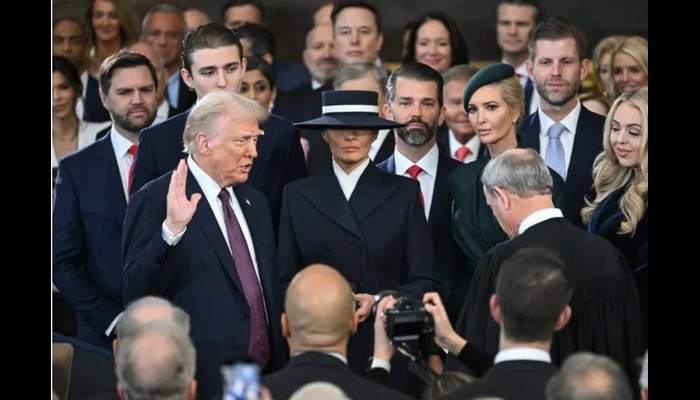In a recent development surrounding the ongoing controversy over TikTok’s ownership, former U.S. President Donald Trump has proposed that the Chinese-owned social media app must have 50% U.S. ownership to continue operating in the United States. The suggestion is part of broader concerns over national security, with Trump arguing that the app’s data collection practices could pose risks to U.S. citizens’ privacy. The U.S. government has been scrutinizing TikTok for its connections to ByteDance, the Chinese company that owns the platform, as well as its potential access to sensitive user data.

Trump’s proposal calls for a restructuring of TikTok’s ownership model, which would require ByteDance to sell a significant stake in the platform to American companies or investors. The move comes after years of political pressure and accusations that the app could be used by the Chinese government to gather information on Americans. The former president’s demands represent an intensifying stance against Chinese tech companies operating in the U.S. market, highlighting concerns over cybersecurity and foreign influence on American citizens.
The concept of a 50% U.S. ownership stake in TikTok aligns with previous discussions about how to manage the app’s potential national security risks. While TikTok has repeatedly denied any wrongdoing, the political and economic pressures have intensified, prompting the company to seek a resolution. Negotiations have involved several American tech giants, including Microsoft and Oracle, as potential buyers of TikTok’s U.S. operations, though no final deal has been made.
Experts are divided on whether this proposal is feasible. On one hand, the idea of U.S. ownership could potentially mitigate some of the concerns about data privacy, but critics argue that such an arrangement could lead to complicated legal and financial challenges. Many are questioning whether a forced change in ownership would undermine TikTok’s business model and its ability to operate effectively. Legal battles surrounding the platform continue, with the Chinese government also raising concerns about the forced sale of its assets.
This move to require 50% U.S. ownership of TikTok is part of a larger geopolitical struggle, as tensions between the U.S. and China continue to rise. Both countries have increasingly targeted each other’s tech sectors, with China pushing back against U.S. firms like Google and Apple, and the U.S. taking a tougher stance on Chinese platforms. The future of TikTok in the U.S. remains uncertain, as discussions continue over the balance between national security concerns and the desire to preserve a global market for digital platforms.





